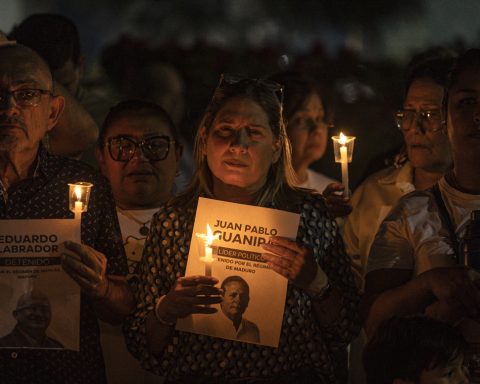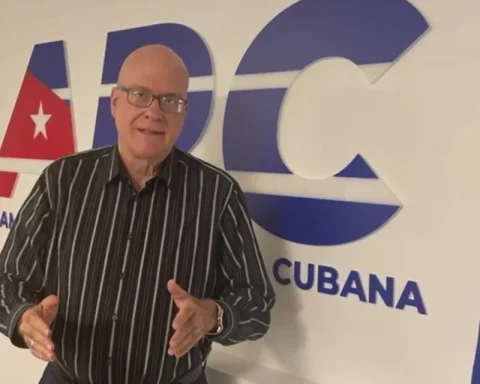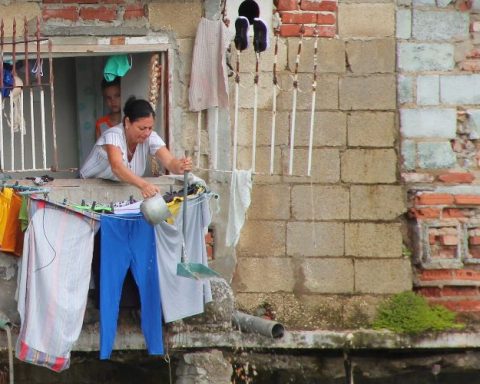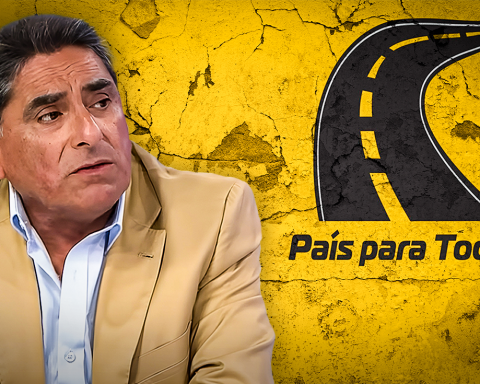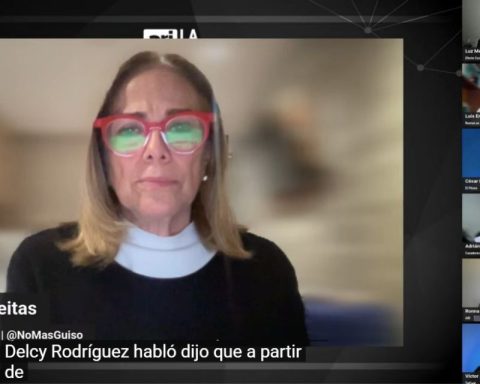Havana Cuba. – Last Saturday, a message from compatriot Martha Beatriz Roque Cabello reminded me of a closed anniversary of great relevance in the lives of both. With her prodigious memory to commemorate her birthdays and anniversaries, my sister in charge pointed out to me that on that date it was the 25th anniversary of our arrest —and also that of Félix Bonne and Vladimiro Roca— on the occasion of the issuance of the document The country belongs to all.
A quarter century! It is said quickly, but looking at things in retrospect, making a brief recount, it seems incredible the long series of events that the signatories of that writing have lived through in that period. For each of The four of themthat early morning represented the beginning of the initial day of our first season of political prison.
It never hurts to point out that The country belongs to all it was drafted and released in response to an invitation from the communists themselves. Around that time in 1997, the Castroists were preparing the congress of the only legal party in Cuba. They took out a very voluminous piece of paper—a real mess—and invited everyone to express their opinions on the matter. My brothers of cause and I take them at their word.
It is true that history repeats itself. A The four of them We had to experience firsthand, in the middle of the Antillean tropics, the same experience that years before had been suffered by those who in cold China listened to the dictator Mao Dze Dong: “Let 100 flowers open! Let 100 ideological schools flourish!” The harsh reality showed that there was only one flower and one ideology: those designed by the communists for the consumption of the whole society.
But it is necessary to recognize that the tome perpetrated by the Caribbean Bolsheviks was a mere pretext. My brothers in the cause and I had to shout our truths to anyone who wanted to hear them! This is what happens when —according to the happy phrase of Václav Havel— someone, in any of the countries shackled by communism, decides to turn his back on the lying official propaganda and chooses to “live in the truth”.
Rereading that document today, the only thing that amazes me is how up-to-date its proposals are right now, unfortunately for Cuba. This sad reality only demonstrates once again —and irrefutably!— to what insane extremes the immobility and contumacy of the Cuban communist regime reach, which remains deaf to the clamor that ordinary Cubans are increasingly raising demanding changes that our country desperately needs.
This was revealed, in an admirable way, on July 11 last year. It is the same thing that, in a smaller setting, took place in days gone by in the Pinar del Río municipality of Los Palacios Y in the park erected in Havana in memory of a terrorist who, in a single night, detonated more than 100 bombs in parks and streets of the capital: a character who, for greater ridicule, is known by his nickname “El Curita”.
I am not sorry to write about the quarter century of the first political imprisonment of the four signers of The country belongs to all when the event has passed. By a happy coincidence, this delay allows me to critically comment on a journalistic work that was posted on the same pages of CubaNet this Sunday.
It is a chronicle of Luis Cino, one of my favorite journalists, whom I follow in an almost religious way. She is titled “The fear of change”. In that text, the aforementioned colleague cites his conversation with “two septuagenarian former teachers”, who, scandalized by the “bad appearance” of those who protested in Los Palacios, affirmed that “before that mob takes power, it is preferable that the communists continue , which at least maintain order”.
Of course I do not question the authenticity of that conversation that Don Luis cites: his professional ethics would not allow him to invent a talk like that. The one that seems wrong to me is the generalization that he makes, by extrapolating that specific experience that he had, by magnifying it, until it becomes a phenomenon that supposedly characterizes the current Cuban society as a whole.
My perception is diametrically opposite. What I have noticed is the great admiration that the majority of the people profess for the brave men who took to the streets on the memorable 11th of July. Or to the compatriots of Los Palacios who did it last Friday. And this despite the propensity of these protesters – which is real – to utter obscene words.
When it comes to swearing, I prefer to paraphrase Nicolás Guillén: “I don’t feel ashamed; let the communists feel it”. These have been the ones who, unlike what happened in pre-revolutionary Cuba, have made more than a tenth of the country’s population pass through the island’s prisons! Naturally, this —reinforced by other pernicious experiences such as military service and “campus schools”— have generalized prison practices and vocabulary throughout society.
The same can be said of the carelessness that prevails among our ordinary compatriots. This is a reality imposed by the misery enthroned by the socialist system and by the propaganda that the communists issued for decades against “bourgeois customs”: another factor that contributed decisively to the channeling of our population.
I do not close my eyes to the subsistence of racial prejudices in some of our compatriots. But I am sure that, if they could choose in a democratic way between one of the Castros or their current dolphin Díaz-Canel, on the one hand, and —let’s say— the Coco Fariñas, Iván Hernández Carrillo or Luis Manuel Otero, on the other, whoever is chosen among these last Afro-descendants would sweep the vote. And that’s the important thing, friend Cino.
OPINION ARTICLE
The opinions expressed in this article are the sole responsibility of the issuer and do not necessarily represent the opinion of CubaNet.
Receive information from CubaNet on your cell phone through WhatsApp. Send us a message with the word “CUBA” on the phone +1 (786) 316-2072, You can also subscribe to our electronic newsletter by giving click here.


